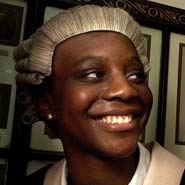Law Weblog
Sentencing Council criticised before it starts
Wednesday 14 April 2010 at 12:13 pm | In News | Post Comment Recent changes have transferred the making of sentencing guidelines from the Sentencing Advisory Panel to the Sentencing Council. The change was criticised in 2009 by circuit judges but has still gone ahead.Professor Andrew Ashworth, the Vinerian professor of English law at the University of Oxford is critical of the new legislation that accompanies the change.
The legislation states that judges must, “follow any sentencing guidelines which are relevant to the offender’s case … unless the court is satisfied that it would be contrary to the interests of justice to do so”. Previously judges were compelled to merely “have regard to” relevant guidelines and to give reasons for any departure from them.
The new act allows judges the freedom to give offenders a sentence anywhere between the bottom of the lowest category – of five categories – and the top of the highest category, without explaining their rationale.
Criminal Evidence (Witness) Act 2008
Wednesday 14 April 2010 at 11:49 am | In News | Post Comment The Criminal Evidence (Witness) Act 2008 survived its first test when two amateur assassins were jailed for life for murder, last month. They gunned down a successful wheel clamping firm owner, Charles Butler outside his home.The case hit complications following a ruling by the Law Lords which restricted anonymous witnesses. A CCTV system the victim had installed recorded the shooting.
Mr Butler’s wife and stepdaughter offered the men £5,000 to have him killed, claiming he had sexually abused the stepdaughter
Mr Butler remained alive in hospital for nine months before succumbing to his injuries.
Four witnesses had already given evidence from behind screens with their voices distorted, and the ensuing chaos caused the judge to stop the trial.
The legislation rushed through by Justice Secretary Jack Straw reintroduced witness anonymity which enabled a second trial to go ahead, but a deadlocked jury could only agree on convicting Johnson for perverting the course of justice.
Police – evidential material – ASBOs and lots more
Wednesday 14 April 2010 at 9:07 am | In News | Post Comment The Crime and Security Act 2010 became law last week and made various changes to police procedure and related matters.• police powers of stop and search – reduces information required for police stops and searches. Where the record of search is to include person’s name and description of person or vehicle, it removes the requirement for the officer to record the incident himself (presumably to allow to be recorded online or over the radio);
• taking, retention, destruction and use of evidential material – establishes new time limits for the retention of DNA samples, DNA profiles and fingerprints (following a European Court of Human Rights judgement) together with extensions to the circumstances in which such samples can be collected;
• the protection of victims of domestic violence – introduces a new Domestic Violence Protection Notice, by which a senior police officer could require a suspected perpetrator to stop molesting a victim and to leave the premises, pending application to court for the Bill’s new Domestic Violence Protection Order;
• anti-social behaviour orders – strengthens the legal assumption that a court will make a parenting order when 10-15 year olds are convicted for a breach of an anti-social behaviour order;
• private security industry – establishes a new licensing requirement for businesses carrying out vehicle immobilisation, in addition to the existing one for individuals;
• possession of mobile telephones in prison – introduces a new criminal offence of possessing a mobile telephone in prison;
• air weapons – introduces a new offence of allowing minors access to air weapons.
Secondaries parties revisited
Sunday 4 April 2010 at 7:33 pm | In News | Post CommentR v Mendez and Thompson [2010] CA
DD were part of a group who chased their victim in the street following a fight at a house about stolen Xboxes. The prosecution alleged that Thompson was the stabber. The jury convicted Thompson and Mendez on the basis that they were secondary parties.
One ground for Mendez’s appeal was whether the use of the knife was “fundamentally different” from anything he foresaw. Thompson appealed on similar grounds.
Held: The court reviewed all the existing cases on joint enterprise and allowed their appeals.
D is not liable for the murder of V if the direct cause of V’s death was a deliberate act by P, which was of a kind (a) unforeseen by D and (b) likely to be altogether more life threatening than acts of the kind intended or foreseen by D.
“It would not be just that D should be found guilty of murder of V by P, if P’s act was of a different kind from, and much more dangerous than, the sort of acts which D intended or foresaw as part of the joint enterprise.”
The principle established in Chan Wing-Siu [1985] HL and reaffirmed in Powell and English [1999] HL is that a secondary party is criminally liable for acts by the primary offender of a type, which the former foresees as a possibility but does not intend. Lord Rodger illustrated the principle in Rahman [2008] HL:
“Suppose that, knowing what A is like and that he tends to carry a gun, B contemplates that A may take a gun and use it in the course of the attack on the victim. Then, even if B is vehemently opposed to the use of a gun and tries to dissuade A from carrying one, nevertheless, if, being aware of the risk, B takes part in the joint assault, he will be guilty of murder if A shoots the victim.
Lord Mustill in Powell and English stated that where D and P embark on a criminal venture in which P goes further than D wishes, but foreseeably so, D has a measure of culpability for P’s act and V’s resulting death but usually at a lower level than P, D is guilty of murder.
In the instant case it was submitted that the unforeseen use of a knife was plainly so different from anything foreseen by Mendez that no jury could have found him guilty of murder on a proper direction.
Not guilty of murder, guilty of violent disorder
Commentary: This case has been reported as showing confusion of the law, but it appears that the law was simply misapplied in this case.
Whole case here
Expansion of barristers’ role
Sunday 4 April 2010 at 2:54 pm | In News | Post Comment Barristers are now able to become managers in legal disciplinary practices regulated by the Solicitors Regulation Authority and work in partnerships with other barristers. The Legal Services Board has relaxed the bar rules that will allow barristers to take advantage of the Legal Services Act 2007.They will now be able to work part-time in an employed or managerial capacity and part-time as a self-employed barrister in chambers. They will also be able to share premises and office facilities with other professionals.
Perhaps the most noiticable change will be that barristers can now carry out work on the preparation of cases that previously only solicitors could do. They will now be able to investigate and collect evidence and witness statements, attend police stations and conduct correspondence.
The public access scheme, which allows people to instruct barristers directly without the need to approach a solicitor fist, will be expanded.
There is no indication how many established practitioners will embrace the changes.
BSB announcement here
New powers to the public on sentencing?
Sunday 28 March 2010 at 11:05 pm | In News | Post Comment The Telegraph reports that under controversial moves likely to be announced within days, a new website will allow people to draw to the attention of Baroness Scotland, the Attorney General, cases where they believe punishments issued in courts have not been harsh enough.She will be under a new obligation to take local campaigns into account before weighing up whether to apply to have a sentence increased because it is unduly lenient.
Report here
Many defendants to be charged with murder of Sofyen
Sunday 28 March 2010 at 10:42 pm | In News | Post Comment Sofyen Belamouadden was stabbed repeatedly during what is believed to have been a pre-planned fight between rival school gangs armed with knives on Thursday afternoon at Victoria station.Police are to bring charges against up to a dozen boys in relation to Sofyen’s death. If they go to trial it will be the most defendants ever to be tried jointly over a single murder.
Twenty boys have been arrested.
Group members who encourage others to kill can be convicted of murder even if they do no more than encourage.
In 2007 five teenagers were convicted of the murder of 16-year-old Kodjo Yenga – who went to the same west London school as Sofyen.
The Telegraph claims that recent statistics showed that of 48 murders due to be tried at the Old Bailey, eight involved at least four defendants.
And then there were 12
Sunday 28 March 2010 at 6:04 pm | In News | Post Comment Sir John Dyson is the first appointed justice of the Supreme Court, the UK’s highest court, after the post had been vacant for 8 months. The other 11 just moved from the House of Lords Judicial Committee.Whilst he is undoubtedly an excellent choice, the process of selection has been exposed as a sham involving many months of behind the scenes wrangling.
Jonathan Sumption, QC, the original favourite, withdrew his application after furious resistance from senior judges. Sumption has not sat as a full-time judge. Yet the Constitutional Reform Act 2005 does not require someone to have served in the High Court or Court of Appeal, and the advertisement for the post reflected that.
Even before 2005, direct appointments were rare but in 1887 Lord McNaughton was appointed from the Bar, as was Lord Radcliffe in 1949. Lord Chancellors were also appointed from the Bar and by virtue of their office sat as law lords.
Lord Falconer, the former Lord Chancellor said, “We were very keen to open up the Supreme Court beyond simply the Court of Appeal judges. If he [Sumption] was the best man for the job, that he did not come from the usual pool should not have been a reason for rejecting him.”
The Sumption episode has left a nasty taste, has undermined the legislation and has failed to bring fresh blood to the judiciary.
First test of the new rules on assisted-suicide prosecutions
Monday 22 March 2010 at 10:20 pm | In News | Post Comment The Director of Public Prosecutions, Keir Starmer QC has ruled that a criminal trial of Caractacus Downes, who took his parents to the Dignitas clinic in Switzerland last summer, would be against the public interest.The decision was the first test of the new rules on assisted-suicide prosecutions, laid down by Mr Starmer last month.
His decision means that no assisted-suicide prosecution has been brought against any of the relatives or associates of the 100-plus people who have travelled to the Zurich clinic to die.
Renowned British conductor Sir Edward Downes and his wife Joan died in the assisted suicide clinic Dignitas. Lady Joan, 74, a ballet dancer and choreographer, was suffering from terminal cancer. She had been married for 54 years to Sir Edward, a former Principal Conductor of the BBC Philharmonic Orchestra.
Sir Edward, 85, while coping with near blindness, increasing deafness, and ‘the ailments of very old age’, was not dying.
Mr Downes, 42, booked a hotel room in Zurich for his parents, even though they had been able to book it themselves.
He also stood to gain ‘substantial benefit’ from the death of his parents, who owned a large house in Blackheath, south-east London.
Starmer said: ‘Mr Downes’ parents had reached a voluntary, clear, settled and informed decision to take their own lives and in assisting them, Mr Downes was wholly motivated by compassion.’
After being instructed by the Law Lords to draw up new guidelines, Mr Starmer last month ruled that six factors would count to show a public interest against prosecution.
These were that the victim had reached a voluntary, clear, settled and informed decision; the suspect was wholly motivated by compassion; assistance rendered was minor; the suspect tried to persuade the victim to live; the suspect was reluctant to help; and the suspect helped the police inquiry.
It is difficult to establish a difference, in practice, under the new guidelines.
The gulf between LPC completers and training contracts widening
Monday 22 March 2010 at 10:06 pm | In News | Post Comment The Law Society has launched a campaign to warn students to think twice about embarking on a career in law. The campaign targets university and secondary school students and contains information about the cost of legal training as well as the shrinking number of training contracts on offer.It is not uncommon for a graduate to apply for 50 jobs, but not been able to secure a training contract.
The campaign from the Law Society warns students that you can’t just swan into a legal job by getting a 2:1 degree and finishing the LPC.
For almost a decade the Solicitors Regulation Authority (SRA) has been engaged in endless reviews to overhaul the route for qualifying as a solicitor. At one stage it even mooted the possibility of doing away with the training contract altogether.
The LPC can total more than £12,000. The minimum salary since 2009, for trainee solicitors working in Central London is £18,590 pa, for trainees working elsewhere in England and Wales, it is £16,650 pa.
Details here
Powered by WordPress with Pool theme design by Borja Fernandez.
Entries and comments feeds.
Valid XHTML and CSS. ^Top^






